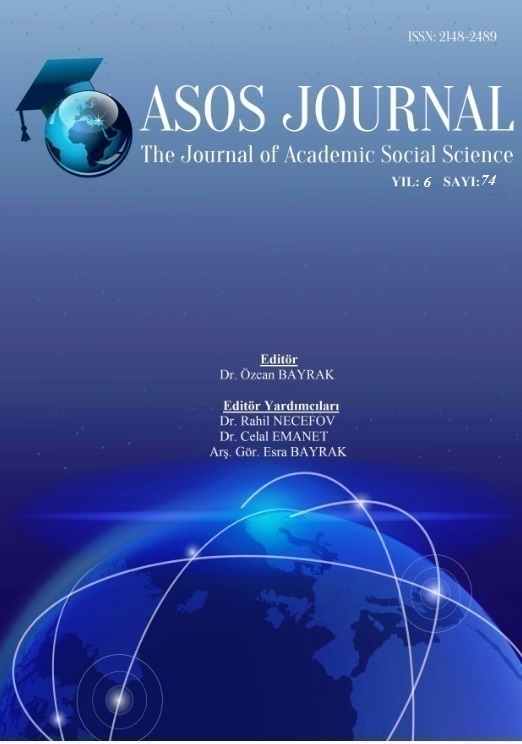Author :
Abstract
Bireyin kişisel çıkarlarını gözetmesi bencillik değildir. Bencillik, bir başkasının pahasına kişisel çıkar arayışıdır. Bencillik tek bir yaklaşımla açıklanamayacak kadar karmaşık; biyolojik özellikler, kişilik, bilişsel ve duygusal süreçler, sosyalleşme deneyimi, kültür ve sosyal bağlamlar ile ilişkili bir özelliktir. Bu çalışmanın amacı, sosyal bilimlerde bencilliği ölçen bir araca olan ihtiyacı karşılamaktır. Bu amacı gerçekleştirmek için; Raine ve Uh tarafından geliştirilen bencillik ölçeğinin (The Selfishness Questionnaire: Egocentric, Adaptive, and Pathological Forms of Selfishness) Türkçe uyarlaması yapılmıştır. Uyarlama çalışmasına 465 üniversite öğrencisi ve ölçeğin uyum geçerliğini test etmek için 308 öğretmen gönüllü olarak katılmıştır. Uyarlama çalışmasında, yapı geçerliğini ortaya çıkarmak için açımlayıcı ve doğrulayıcı faktör analizi yapılmış, ölçüt geçerliği için korelasyon ve regrasyon teknikleri kullanılmıştır. Yapılan analizler sonunda, ölçekten 6 madde çıkartılmış, üç boyutlu yapı kanıtlanmış, tüm faktör yüklerinin kabul edilebilir sınırlar içinde olduğu görülmüştür. Ölçeğin faktör ilişkileri; üç alt boyu için .71 ile .76 arasında hesaplanmıştır. Ölçeğin uyum indeksleri de iyi bir modele işaret etmektedir. Ayrıca uyarlanan bencillik ölçeği ile empati arasında negatif, narsizm arasında pozitif ilişkiler saptanmıştır. Uyarlanan bencillik ölçeği psikolog, psikolojik danışman, eğitimci ve araştırmacılar tarafından güvenle kullanılabilecek bir ölçme aracıdır.
Keywords
Abstract
Looking after one’s personal interests is not selfishness. Selfishness is the quest of personal interests at the expense of another person. Selfishness is so complex that it cannot be explained by a single approach and it is a characteristics that is related with biological qualities, personality, cognitive and emotional processes, socialization experience, culture and social contexts. The objective of this study is to meet the need for a device that measures selfishness in social sciences. The Turkish adaptation of the selfishness scale (The Selfishness Questionnaire: Egocentric, Adaptive, and Pathological Forms of Selfishness) developed by Raine and Uh was conducted to realize this objective. The adaptation work included 465 university students and 308 voluntary teachers participated to test the concurrent validity of the scale. Exploratory factor analysis and confirmatory factor analysis were done in the adaptation work to reveal the construct validity. Correlation and regression techniques were used for the criteria validity. After the analyses, 6 items were removed from the scale, three-dimensional construct was proven and it was seen that all factors were within acceptable limits. The factor relations of the scale were calculated to be between .71 and .76. The fit indices of the scale also indicate a good model. In addition, negative relations were found between the adapted selfishness scale and empathy while there were positive relations with narcism. The adapted selfishness scale is a measurement tool that can be reliably used by psychologists, psychological counsellor, educators and researchers.





